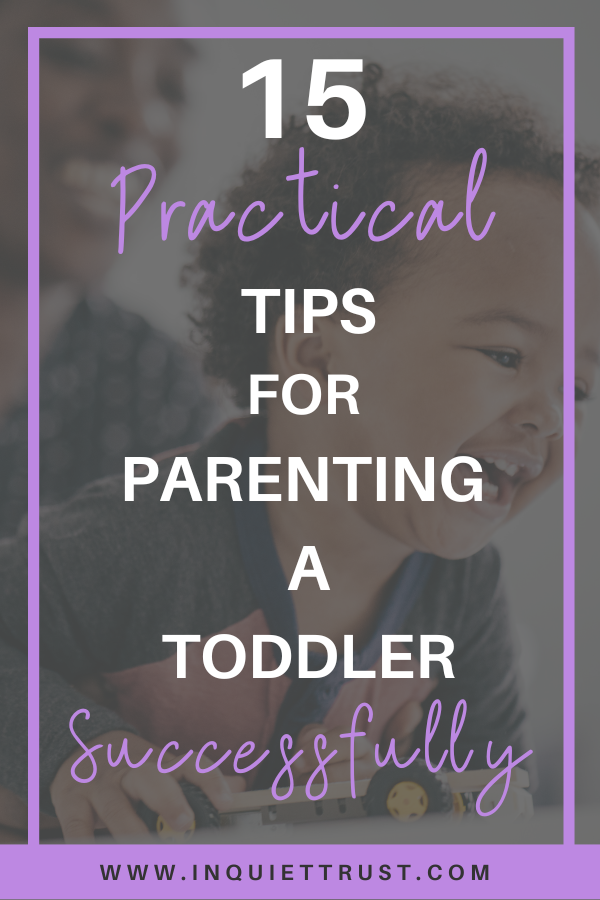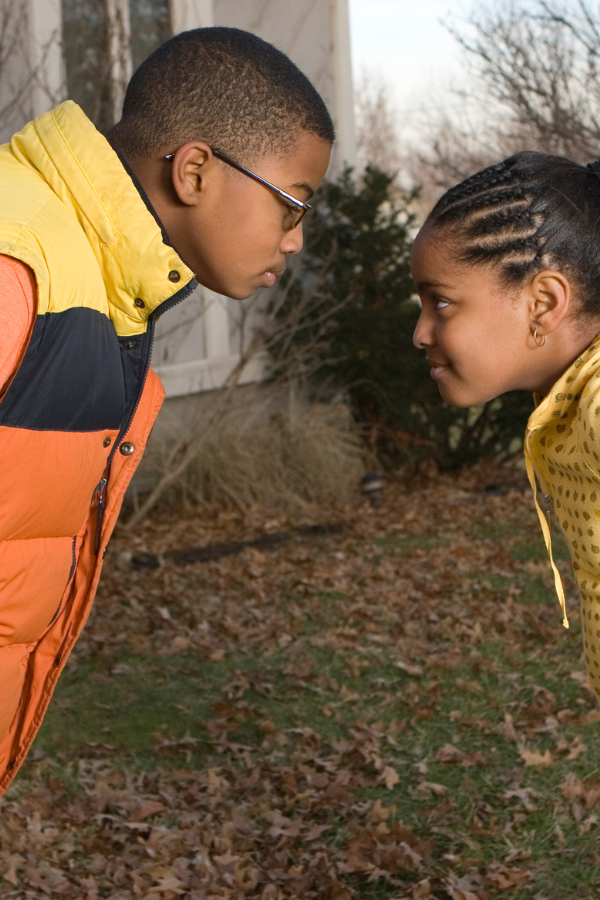15 Practical Parenting Tips for Toddlers | Toddler parenting
Toddlers are always moving! You can’t even close your eyes for a second. Usually, it’s better when they’re loud, but when all you hear is silence, they’re probably doing something ‘bad.’
As much as we rebuke the havoc they cause to the house, they are a bundle of joy, and there’s no doubt about that.
If you are a first-time parent, you probably badly need parenting advice. How do you handle a toddler tantrum? How do you get your toddler to eat? How do you teach your two-year-old about God? How do you do potty training?
Tons of blog posts will give parenting tips for toddlers, and they will all come in handy when you don’t know what to do with your toddler. Trust me.
Parenting a toddler is not an easy job; you have to consider your child’s physical and mental health and be able to communicate with them at their level of comprehension.
Also, not many parenting tips for toddlers will show you how to handle your child’s unique personality. You have to be able to identify any signs of social impairment like autism while also making sure that your child has a happy childhood.
It is a lot even for the best mother on the planet, but with proper guidance, you should be able to train your toddler to become a great person in the future.


- Related posts:
- Top Benefits of Parent Involvement in Early Childhood Education
- 5 Tips To Turn Your Child’s Bedtime Into A Fun Routine
- 40 Quick and Healthy Meal Ideas for Toddlers – In Quiet Trust
Why parenting a toddler can be challenging
Parenting toddlers can feel ridiculously hard, so hard that it can result in mental and physical exhaustion.
This is because toddlers are still very much dependent on you as a parent, and you have to do everything for them—provide, feed, clothe, take care of them every day, and supervise them 24/7.
These responsibilities can sometimes feel more like a burden to parents.
Additionally, during this period, one thing you will not have for yourself is TIME. You won’t have time for anything—no time to socialize, make friends, or even maintain existing friendships.
Your day becomes consumed with the kids—tidying the house, folding clothes, picking up objects, and rearranging.
Also, at night, you ensure they get enough sleep, prepare for tomorrow’s meals, and do some extra cleaning. You’re hardly awake, and the cycle repeats itself.
Common Mistakes made by Parents of a toddler
Being a parent can be a nerve-racking experience, especially if you are worried that you will not do everything right. But as humans, we are bound to make mistakes.
Some common mistakes some parents make are:
Not being consistent with your toddlers.
The more consistent things are, the more resilient and agreeable a toddler is likely to be. Try to set a bath time, feeding time, and bedtime, and be consistent with it.
Have a schedule and follow it consistently.
Offering too much help.
This attitude may sabotage the toddler’s ability to become self-reliant. Teach them to tolerate struggles and guide them as they learn new things for themselves.
Starting potty training too soon.
Some parents persuade their toddlers to use the toilet or potty when they think it’s time and become furious when things go awry.
You shouldn’t rush this process because their cognitive ability to recognize when they are pressed and express it might not come as early as you expect.
Giving too much screen time.
You don’t want to train your toddler to engage with the media rather than being creative. Media isn’t bad, but it shouldn’t be the core learning tool for your child. Instead, engage them in other creative pursuits.
Having unrealistic expectations
When parents have unrealistic expectations from their toddlers, it places unrealistic standards of perfectionism, which can be hard on your kid, resulting in self-esteem issues later on in life.
Failing to lead by example
Parents are the toddlers’ first teachers; therefore, learning by example from you is crucial, and what’s more? They tend to learn faster from what they see.
Children look up to models in their environment to learn what is acceptable and what isn’t. Being a good model as parents allow these toddlers to learn positive behaviors.
Qualities of a good parent
One of the top qualities of a good parent is that they are teachers. You teach your child to be kind, loving, respectful, and empathetic as a parent. You teach them to give and many other qualities a good child should have.
To be a good teacher, you also need to have some qualities. These include:
Patience
This quality is at the top of the list because children will consistently be annoying. They can simultaneously be messy, noisy, and destructive, so one attribute you should have in training them is patience.
Forgiving
Children can be so funny; they do things that will upset you, but you shouldn’t stay mad for too long as parents.
Dependability
Kids feel safe when they have dependable parents. You should be able to provide this for them.
- A good parent should be compassionate.
- A good parent should multitask.
- A good parent should have a loving disposition.
- A good parent should have open ears because kids love being heard; they like to know that their voice matters.
Parenting Tips for Toddlers
There are many things to keep up with as parents having toddlers. At this stage in their lives, they are active and will want to communicate their needs, wants, and desires.
Here are some helpful parenting tips for toddlers:
- Help them learn new things, explain how things work, set specific times aside to teach them, and read books.
- Respond positively to good behaviors from them than you punishing unwanted ones.
- Allow your toddlers to make choices. Let them choose what games to play and the books to read. Let them feel in control without getting interrupted or frustrated.
- Allow them to get involved in some of the activities you do.
- Create a safe and exciting environment for your kids. Kids tend to misbehave when bored.
- Be willing to listen to them even when they are not making sense. Always try to understand your children’s words and expressions.
- Talk with them like they will understand you. Engage your toddlers in conversations, and let them gradually learn how to interact with people.
- Give them precious and positive childhood memories.
- Think of how you would’ve wanted to be treated as a toddler. Reflect on your childhood and identify aspects you would like to change.
- Take care of your mental health, and ask for help whenever you feel it’s needed. Don’t overstretch yourself.
- Get involved in the early education of your toddler and follow up with their daily school activities.
- Engage your toddler in recreational activities that are educational and fun.
- Do not place too many expectations on your toddler. Let them learn new things at their pace, but offer them guidance, support, motivation, and even incentives.
- Spend quality time with your toddler because this is the time where they start to learn character and what is right from wrong. You have to be actively involved in this stage, which means being available at all times.
- Be firm in training and adhering to rules. Express the importance of the rules, and let them understand that they are essential.
Bonus: How to deal with toddler temper tantrums
Temper tantrums are unpleasant or emotional outbursts associated with crying, screaming, or kicking. It can also be an outburst of anger and frustration.
Even though temper tantrums can make you question your parenting skills, they are part of a toddler’s normal development.
Here are some ways to deal with toddler temper tantrums without losing your mind:
- Find out why the tantrum is happening.
- Understand and accept your child’s anger; you probably feel the same way yourself at times.
- Handle aggressive behavior immediately.
- Refrain from yelling
- Find something to distract your toddler when they start a tantrum.
- Try holding your child firmly until the tantrum passes; this can be helpful, but it can be hard to control a struggling child.
- Do not react angrily. You can even leave your child to cry/scream, and when you are calm, you can talk to them gently and try to reassure them.
Let’s Recap
There might not be the perfect parenting tips for toddlers, but what matters is you do the best for your child, control what they see, and always be very observant.
As a parent, I think the most challenging part of the toddler stage is identifying your child’s personality because it is at this stage they begin to have a mind of their own. They know what they want and are not scared to express it.
At this stage, you must be able to guide them in such a way that you give them a chance at self-expression while also maintaining the boundary between right and wrong.
It will challenge you, make you happy, and frustrate you, but you will feel fulfilled at the end of the day.
The parenting tips shared in this post are more like guidelines, so feel free to add yours to the list. Make sure to closely monitor your child’s reactions to these tips because it will also give you an insight into what type of person they are becoming.
Do you have any parenting tips for toddlers you might want to add to the list? Do share in the comments below.
READ ALSO: Benefits of Parent Involvement in Early Childhood Education
If you’ve made it this far, I want to thank you for sticking around and reading this post. Leave a comment below to let me know you stopped by. Please be sure to like, pin, and share this post as well! Your support means everything! If you’ve enjoyed this post and want to see more like it, or receive a short weekly devotional, be sure to subscribe to my newsletter below!
[mailerlite_form form_id=1]





